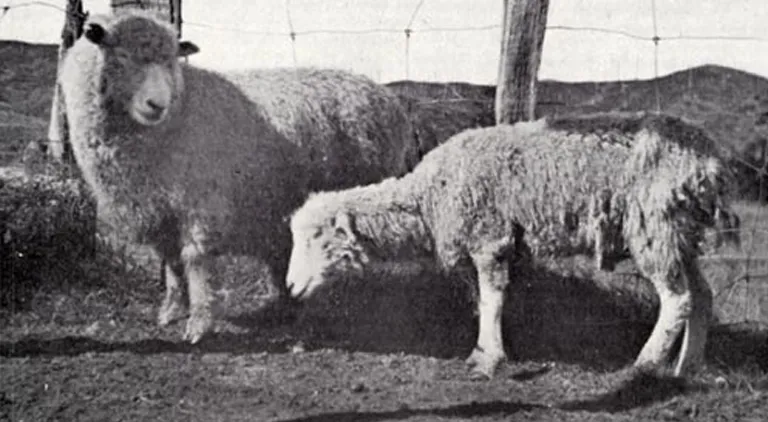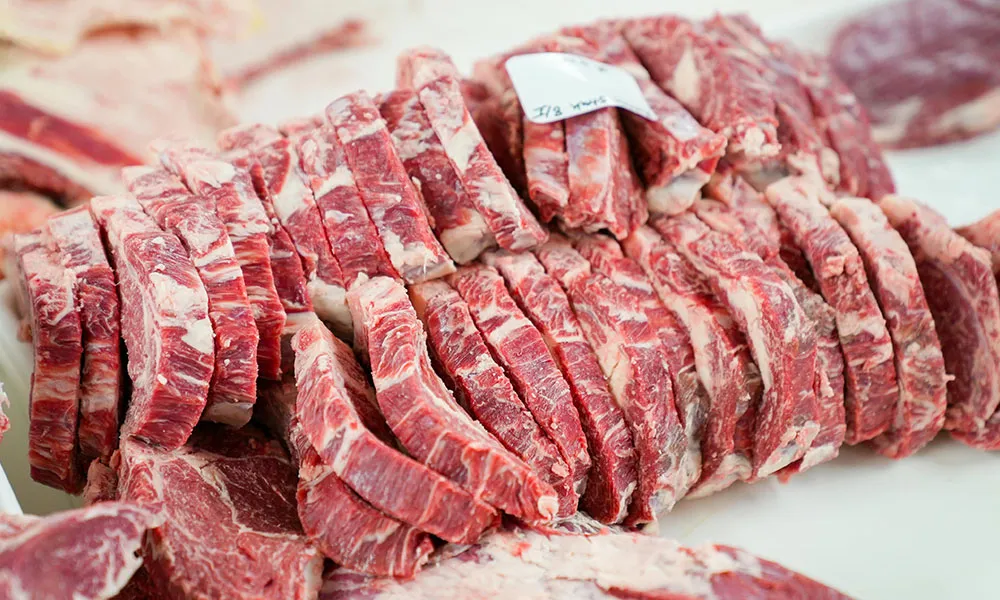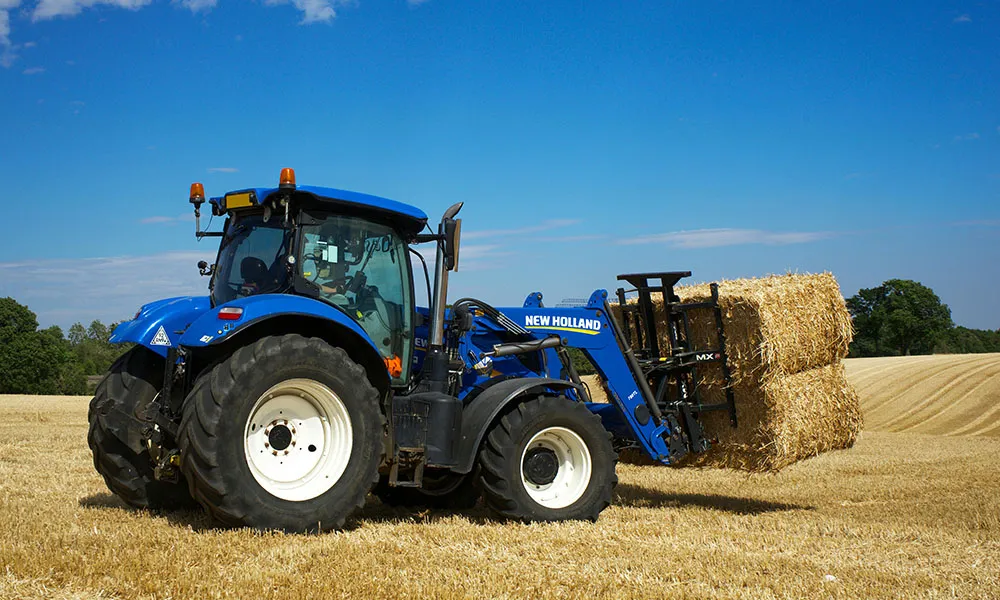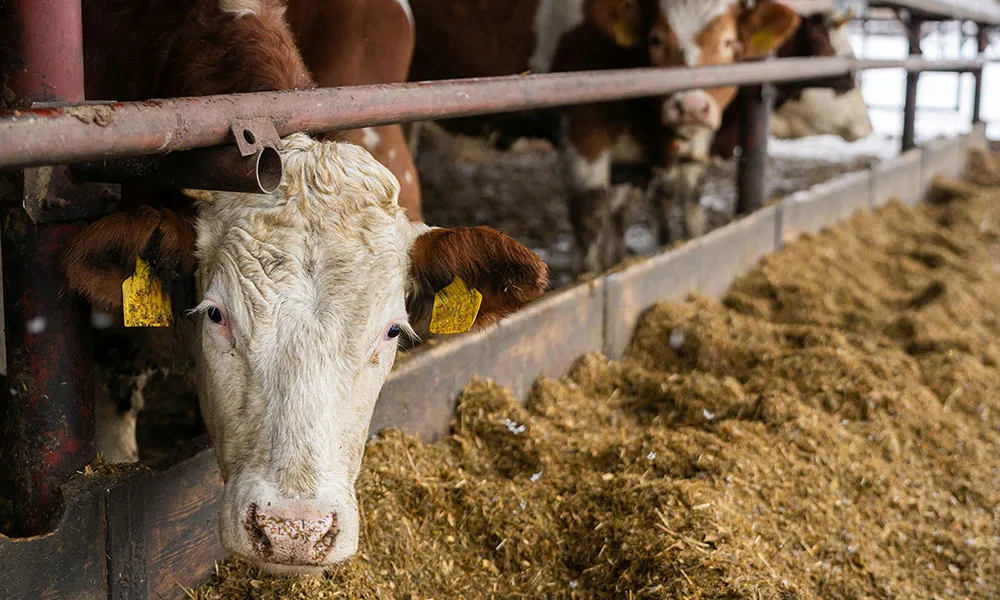
Agridirect discusses cobalt deficiency in sheep, and offers some advice on how to prevent and treat it.
What is cobalt and why do sheep need it?
Cobalt is a naturally-occurring chemical element. Farmers are familiar with it because all ruminants require it for the synthesis of vitamin B12. Without an adequate supply of vitamin B12, sheep cannot survive. So the more important question is: “What is Vitamin B12, and what is it used for?”
Vitamin B12 plays a huge role in the everyday functioning of a ruminant’s body. Cattle, and especially sheep, need it for the metabolism of energy and the production of red blood cells. The vitamin is stored in the liver, and also has a role in wool and body growth in sheep.
Vitamin B12 can be purchased solely as an injection and will give an instant effect. However the cost of the injection often does not match many farmers' budgets. B12 injections are costly, and farmers with large flocks would need an almost limitless supply of it. This is where cobalt comes into play.
Cobalt is a constituent of vitamin B12. It plays a biological role in the rumen, manufacturing vitamin B12 with help from micro-organisms inexpensively. A lack of cobalt in the diet is often a consequence of poor soil cobalt levels. Interestingly, soil pH, soil compaction and rapidly growing pastures can affect cobalt uptake, through the grass in which the animals are eating. Cobalt levels in pasture will decrease if soil pH rises, while high molybdenum levels in the soil can also induce cobalt deficiency.
How will a deficiency in vitamin B12 affect your flock?
Sheep suffering from B12 deficiency tend to lose their appetite. They will usually have a poor coat of wool and lack body condition. Farmers will often see these symptoms in weaned lambs, during late Summer and Autumn, when out on pasture.
However, there are other symptoms worth noting!
Weeping eyes, failure to thrive, scabby ears and anaemia are also signs of a lack of vitamin B12 in lambs.
Ewes, on the other hand, may exhibit infertility and poor mothering ability, although these symptoms are fairly uncommon.
How can I test to prove a deficiency in Cobalt?
Thankfully, there are a handful of tests which you can carry out, if you suspect your soil is cobalt deficient.
Firstly, the most direct way of testing is to take a blood sample from your animal. A blood test for cobalt measures the level of an enzyme called methylmalonic acid, which will increase whenever the level of vitamin B12 is low.
A pasture test can also determine that your fields are low in cobalt. Usually, pasture tests don’t check for cobalt as it’s not an essential nutrient for plants to grow. It can, however, be included on request. In a pasture test, you are aiming for cobalt levels above 0.04 parts per million (ppm) to avoid being in a deficit.
Lastly, you may carry out a home test if you suspect a deficiency on your farm. You can do this by injecting a fraction of a batch with injectable vitamin B12 and comparing their live-weight gains in two weeks’ time to those animals that weren’t treated.
How do you combat cobalt deficiency?
Even relative to other ruminants, sheep have an extremely limited capacity to store vitamin B12. This means that they need continuous supply of cobalt to avoid deficiency. The simplest way of ensuring sheep have a continuous supply of cobalt is through their diet.
Interestingly, your pasture species will determine cobalt concentration with clover having higher cobalt levels than ryegrass species. Cereals also have low levels of cobalt, particularly grain. So don't forget to supplement your flock with cobalt if they are on a high meal diet!
Soil cobalt levels
Soil pH, soil compaction and rapidly growing pastures have a strong impact on ground cobalt levels. So, how can you overcome low levels of cobalt in your soil? Thankfully, there is an easy solution.
Cobalt can be added by spraying on the pasture or by including in into your fertiliser.
However, be mindful of not adding cobalt to your pasture too soon after liming, as the alkaline pH will limit your cobalt availability.
In addition, testing your soil to see your iron and manganese levels can give you an indication as to why your soil is low in cobalt. Iron and manganese will decrease cobalt availability and inhibit uptake.
Injections
As already touched on above, Vitamin B12 injections are the quickest and most effective treatment for B12 deficiency. A single injection should prevent a deficiency of the vitamin for approximately 6-8 weeks. However, you will need large doses to make a difference in the long term, and this means exorbitant expense!
Boluses
Boluses are the ideal solution for cobalt deficiency, slowly releasing the mineral (and possibly other minerals) in the reticulum over a longer period of time. The slow releasing cobalt is ideal for sheep due to their limited capacity for storing vitamin B12.
Our two biggest selling cobalt boluses are the cobalt 12 and Cobalt Master.
However, often the boluses prove expensive for lambs, because they only require supplementation for two to three months. Cobalt boluses are the ideal method of supplementing sheep intended to be on the farm long term.
Drench
Another method of supplementing cobalt is the oral drench, which is favoured by many farmers. Cobalt in drench form is the cheapest method of supplementing the mineral but unfortunately will only last a maximum of three weeks.
Obviously, this will increase your workload. Nonetheless, using an oral drench has huge financial benefit for weaned lambs that you only intend to keep for a few months.
The most popular drenches sold are Growvite and Cobalt B12, which also contain other minerals.
However, the latest invention of anthelminthics containing cobalt are now on the market and is proving popular. Anthelminthics fulfil two jobs in one, saving lots of valuable time for busy farmers! However, be wary as the principle group of anthelmintics, the white drenches combined with cobalt is 1-BZ, have the highest resistance level of the drench types. 80% of Irish farmers have 1-BZ resistance. Dosing lambs from around three months of age is advised.
Lick Buckets
And lastly, I left the solution that is going to require the least effort until last. That is, of course, the lick bucket.
Again, anything that seems too good to be true generally is too good to be true. Giving free access minerals to your flock is unfortunately not a reliable method of supplementing minerals due to intake varying throughout the entire flock with some lambs receiving no intake. However, the lick bucket is still a convenient and broadly effective means of getting cobalt into your flock!










